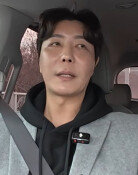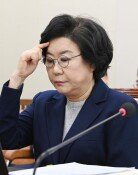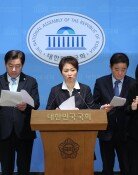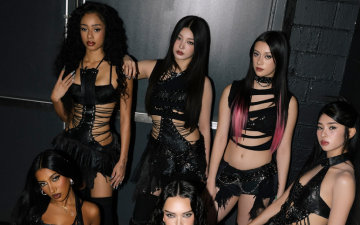[Editorial] Court-Prosecution Conflicts over Issuing Warrants, Need New Approach
[Editorial] Court-Prosecution Conflicts over Issuing Warrants, Need New Approach
Posted October. 04, 2007 07:56,
Expressing his concern about the conflicts between the Court and the Prosecution over arrest warrant issues on October 3, Lee Yong-hun, the chief justice of the Supreme Court, called for a new approach that should be found from the publics viewpoint. The prosecution recently held a meeting of high court chief justices to discuss the denial of arrest warrants for Jeong Yun-jae, former presidential aide, and Shin Jeong-ah, fraudulent art curator. Against this backdrop, the remarks of the chief justice can be interpreted as a goodwill gesture to intervene in what appears to be a collision course between the two government agencies.
In a legal lawsuit in which there is no risk of evidence being destroyed or lost, the court is correct in its saying that investigations should be conducted without the detention of suspects. However, the court should also bear in mind that it is responsible for finding out the truth of the case which drew great interest among the citizens, with strict application of the law from the initial stage of issuing warrants. Eliminating corruption among those with power is our major task before the society is ushered into the ranks of advanced countries.
The two cases are allegedly related to irregularities and corruption of power. Jeong Yun-jae is revealed to have acted as an intermediary to help the avoidance of a tax probe in return for a bribe. Byeon Yang-gyun, the former Presidential Secretary for National Policy, is said to have helped Shin by exploiting the national budget collected from taxpayers money.
In this regard, we cannot help but wonder if the court could dismiss the public proclamation that the ordinary citizens are not benefiting the same principles of the denial of an arrest warrant applied for those with power. The court may draw criticism for protecting people with power while neglecting the powerless. Moreover, the court decision over the risk of destroying evidence could vary according to the justices opinion.
After the dismissal of the warrant for Shin, the prosecution expressed its disappointment at the so-called courts behavior being nothing short of chaotic to the legal system. However, it is difficult to see the unusual harsh response from the prosecution was relevant. The issuance of an arrest warrant is an exclusive right of an individual justice. It is said that many justices expressed their frustration over the prosecutions statement, complaining about the courts decision.
Chief justice Lee clarified his opinion, saying, the courts decision should not be influenced by the prosecutors office, adding, There is no way that the Court should get in the way of the prosecutions investigation, As the head of the legal system, he seemed to believe that he should no longer neglect the ongoing conflicts between the two agencies. As he said, now is the time for prosecution and the court should come up with a new harmonious approach to get to the bottom of these corruption scandals.







